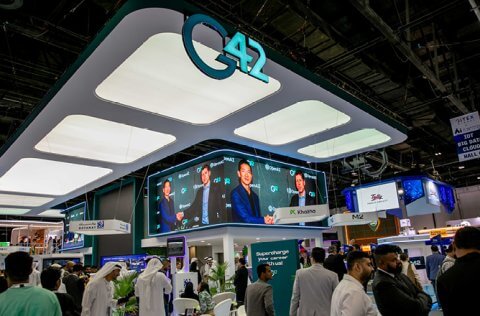Peng Xiao, Group CEO at G42, has called for greater collective efforts to ensure that everyone in society has equitable access to AI, following their report that showed many markets are not ready, and lack the infrastructure required to embrace AI fully. 
According to the report, emerging markets show considerable appetite for catching up with current AI developments. Yet, many countries rank behind in technological advancement, often lacking sufficient infrastructure and skilled talent. Additionally, political and economic factors such as currency volatility, regulatory uncertainty, and political instability have constrained large-scale investment in many of those surveyed markets.
Speaking about the newly launched report, Peng Xiao, Group Chief Executive Officer of G42, said, “We find ourselves at an inflection point. Collectively we need to make sure history does not repeat itself. If we look back, electricity was invented over 140 years ago. Yet even today almost half of Africa does not have access to it. Just as electricity did, AI promises to reshape entire economies and societies. And just as electricity, intelligence remains inaccessible to many. At G42, we believe that as intelligence through the form of AI becomes a utility, it becomes our joint responsibility to ensure equitable access for everyone. Our latest research helps us understand emerging market needs, the opportunities that lay within each, and the obstacles that prevent those markets from utilizing intelligence in a meaningful manner.”
Digital infrastructure poses a major challenge
The new report reveals AI readiness varies considerably among business leaders across those markets surveyed. Having spoken to 700 directors and senior managers involved in the decision-making of AI deployment at medium and large companies, findings showed that inadequate infrastructure remains the main obstacle to widespread adoption.
According to the research, 20% of correspondents said their infrastructure is not yet equipped to fully embrace AI despite having essential IT foundations in place – e.g., 70% of respondents report access to a consistent and stable internet connection, which is crucial for using AI systems. Another challenge is access to good-quality data. Respondents described limited or no access to training data
(81%) and high-capacity computational systems to feed and power AI systems (84%).
A contributor to the report, Samir Rustamov, Associate Professor at the School of IT and Engineering at ADA University, concluded on the topic, “AI systems are based on data-driven algorithms, which means high-quality data is essential, and most countries, including Azerbaijan and Central Asian countries, are struggling to access reliable data.”
Talent scarcity in emerging markets
In addition to the infrastructure and the physical capital that is needed to develop and adopt AI solutions, human capital remains hugely important. As AI becomes more commercialized and readily available, the sought-after employee profile is changing.
Speaking about AI recruitment, Maymee Kurian, Group Human Capital and Culture Officer at G42, said, “Talent is critical. In a field such as AI, which is highly innovation-driven and evolves at lightning speed, it’s crucial to find the right talent that can keep up with those changes but also bring new perspectives. As part of our worldwide recruitment strategy, we seek to attract the best talent from all parts of the world to work for what we think is the most exciting sector that exists at the moment.”
The challenge emerging markets are facing is that they are plagued by a long-standing talent shortage. This lack of talent is preventing 45% of survey respondents from implementing AI solutions across their workstreams. Additionally, human capital flight is a real issue for emerging markets, as young talent – particularly STEM students – often pursue higher-paid career opportunities abroad after they graduate.
Education generally is a challenge. Alone in India, one of the surveyed markets, the report found that in 2022 the number of Indian students who left the country to pursue higher education reached a six-year high of 770,000 people. In Turkey, a combination of high inflation and political turmoil has driven talent out of the country. In the same year, a total of 139,531 Turkish citizens emigrated aged between 25 and 29.
Long-term investment and ROI considerations
While most respondents agree that there are significant benefits to AI solutions, 29% of surveyed participants noted that in addition to workforce and infrastructure challenges, the lack of a clearly defined return on investment for AI solutions presents an obstacle. This is particularly salient in markets with lower AI adoption.
Mohit Kapoor, Chief Technology Officer at Mahindra Group, maintained, “There are four points we use to determine if AI is working: net revenue, cost reduction, customer experience and satisfaction, and risk reduction.”
So, the benefits of AI solutions are enticing. 59% of respondents cited increased productivity and efficiency, 42% improved customer satisfaction, and 38% cost reduction as leading factors to adopt AI. Most noted that their deployment spans across various business functions with 58% saying they are using it for finance and accounting, 49% applying it for customer service, 48% for procurement and purchasing, and 46% for human resource purposes.
Investing in the Global South
G42, a UAE-based and Abu Dhabi headquartered firm, has made inclusivity and equity a major theme when introducing the concept of an ‘Intelligence Grid’. Aimed at equally distributing intelligence, this distributed and interconnected infrastructure promises to have a major impact on the Global South.
On the infrastructural side, G42, in partnership with Microsoft, already announced a US$1 billion investment into Kenya’s digital infrastructure. As part of the investment, the plan is to build a state-of-the-art green data center, which is strategically located in Kenya’s geothermal-rich region. The data center is planned to have an initial capacity of 100 Megawatt with the potential to build up to one Gigawatt, setting a new standard for sustainable data centers.
Additionally, people involved in the project expect to positively impact the skill development of local talent entering Kenya’s thriving technology sector through the investment.
Ensuring equitable access to AI, and aiming to preserve languages and cultures more broadly, G42 has launched several large language model (LLM) initiatives to rival English-first LLMs. With JAIS 70B, the world’s first open-source Arabic LLM, for example, G42 wants to unlock access for 400 million Arabic speakers worldwide to culturally sensitive generative AI capabilities in their native language.
Most recently, the firm has also announced NANDA, the Hindi-speaking equivalent of JAIS, potentially reaching hundreds of millions of users in India. Andrew Jackson, Chief Executive Officer of Inception, highlighted during the launch, “G42 has a strong track record in the development of language and domain-specific LLMs. With NANDA, we are heralding a new era of AI inclusivity, ensuring that the rich heritage and depth of the Hindi language are represented in the digital and AI landscape. NANDA exemplifies G42’s unwavering commitment to excellence and fostering equitable AI.”
Ready, Set, AI is only the latest report released by G42 in the last year. Others include ‘The Future of Sport and AI’, developed in partnership with The Future Laboratory, a London-based foresight consultancy, as well as ‘Sovereign AI Ecosystems: Navigating Global AI Infrastructure and Data Governance’ authored with POLITICO’s Research and Analysis Division to inform AI decision-makers.
For more information about G42 and further reading, please visit www.g42.ai.





